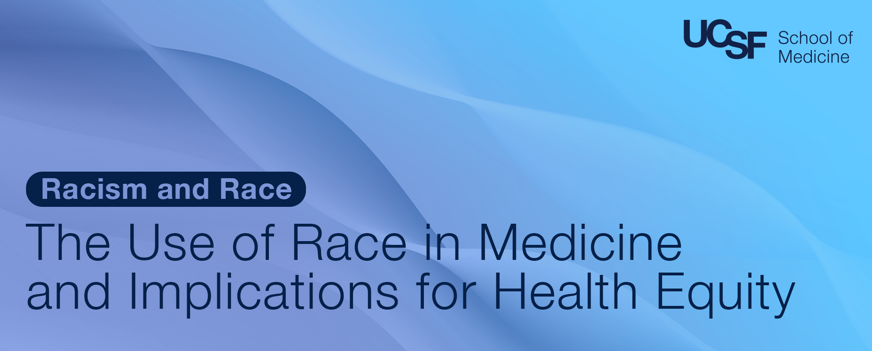
By Sarah Paris
Precision medicine promises new discoveries that will result in better outcomes, value, and equity in health care. It achieves this by synthesizing vast amounts of data across the health sciences. But what if the data are tainted by false or downright racist assumptions?
The Problem of Race
The impact of race identification has become a widely discussed conundrum. Scientists generally believe that “race” is a social construct, with no biological basis, and that health differences between populations are not due to race, but to systemic racism. Racial stereotypes can lead to false and damaging clinical decisions. For example, myths about African-Americans experiencing less pain or having thicker skin persist among health care providers, leading to disparities in treatment.
Does this mean that “race” as a category should be eliminated altogether when capturing data on human health? Most experts agree that race as a proxy for genetic ancestry is neither accurate nor helpful. However, the category nevertheless contributes to our understanding of the way populations are affected by racism. To map the impact of racial discrimination, scientists need the ability to correlate race and the types of disease caused or impacted by social determinants of health, including socioeconomic status, geography, and the daily stress racism inflicts on people of color.
There are in fact biological differences related to genetic ancestry, but they do not necessarily correspond to a person’s self-reported racial identity or to their apparent race. As anyone who ever watched the TV show “Finding Your Roots” has learned, people’s genetic make-up is typically mixed. Someone might identify as Black but may genetically be predominantly European, and vice versa. Capturing genetic ancestry instead of race is however not, or not yet, practical for most health systems, although some efforts are underway (see NIH All of US Research Program below).
The Problem of Racism
Detecting meaningful biological differences among human populations of different ancestries is complex enough. Research shows that individuals within groups can display more variation than is seen among population groups. Adding the long history of racism escalates the problem from difficult to “wicked.” In the U.S., the legacy of racism reaches back to the nation’s founding, affecting every sector of society, including medicine and science. To justify the notion of white supremacy, scientists cited spurious differences between racial groups. Doctors exploited vulnerable populations in experiments such as the notorious Tuskegee Syphilis Study.
Given this history, it is not surprising that Black, Hispanic/Latino, and Indigenous populations are more reluctant than Whites to participate in medical research.
Lack of Representation
The Human Genome project should have been called the European Genome project.
Esteban G. Burchard, MD, MPH
Because a large part of research is conducted on subjects of European origin (usually male), important data are left out. “The Human Genome project should have been called the European Genome project,” said Esteban Burchard, MD, MPH, a pulmonologist and UCSF professor of Pharmacy and Medicine, who studies genetic and environmental factors that drive health disparities in asthma and other lung diseases.
“96% of genetic studies have been done on people with European origin, even though Europeans make up less than 12% of the world’s population.” Burchard supports the inclusion of self-identified race and ethnicity in clinical and biomedical studies, while asserting that a genetic base for vulnerabilities to certain diseases can be clinically relevant. In a study of over 11,000 minority children, he and his co-investigators found that African-American and Puerto Rican patients did not derive the same benefit from modern asthma therapies as other groups, because of a difference in their pharmacogenetic response.
Bias in AI
Lack of representation contributes to bias in artificial intelligence (AI), which is a key component of precision medicine. To work optimally, AI tools need large amounts of data from a wide array of sources with a broad spectrum of patients from diverse racial/ethnic and socioeconomic backgrounds. Barriers to data sharing, whether individual or institutional, skew AI results. Reasons why healthcare organizations may resist sharing information can include security concerns, the vital need to protect patient privacy, or gaining advantage over competitors.
A Precision Medicine Approach
Since race and racism impact data, and data are the foundation of precision medicine, it is imperative for those in the field to understand the relationship between human biological differences and health inequities. “We need to demonstrate conceptual clarity about both ancestral genetic variation and social categories—the latter rooted not in genes, but in in lived experience—as we design and execute research," said Barbara Koenig, PhD, RN, the recently retired director of the UCSF Bioethics Program.
To undertake this challenge, Keith Yamamoto, PhD, director of UCSF Precision Medicine and vice chancellor for Science Policy Strategy, has convened a brain trust of UCSF faculty with expertise in genetics, epidemiology, ethics, and computational health. Headed by Ben Rubin, PhD, associate director of UCSF Precision Medicine, the group seeks an understanding of the role of race and to identify how racism impacts the aims, structures, and practice of precision medicine. The ultimate goal is to advise on strategies and actions to ensure that precision medicine combats, rather than perpetuates, racial inequities.
Acknowledging the complexity of the task, the group has established high-level principles and priorities, including:
- Unpack confusing, vague, and downright false definitions, assumptions, and categories that historically have differed and conflicted across the research silos of basic, clinical, and population science.
- Convene wider conversations on campus, and lead or engage in efforts nationally.
- Align with related efforts at UCSF, such as the REPAIR project and the CTSI Special Populations for Health Equity Research and Education (SPHERE)
- Engage with UC-wide efforts, including the AI bias task force.
- Establish new intramural funding (as part of the Marcus Program in Precision Medicine) for research defining the determinants of racism or approaches to combatting it.
Engagement in National Efforts
The timeliness, indeed urgency, of this project is evidenced by growing national discussions around the use of race and racism in medicine and science. To cite just one of the many recent publications on the topic, JAMA has released Updated Guidance on the Reporting of Race and Ethnicity in Medical and Science Journals.
The National Academies convened a summit on Addressing Diversity, Equity, Inclusion, and Anti-Racism In 21st Century STEMM Organizations. The two-day event, co-chaired by Keith Yamamoto, PhD, was webcast and open to the public. It explored empirical and experiential evidence related to ways in which systemic racism and other barriers impede STEMM (science, technology, engineering, mathematics, medicine) careers for historically excluded racial and ethnic groups, and proposed ways to address those barriers. The summit was the first event in a major National Academies initiative focused on race and racism in STEMM.
The NIH All of US Research program, formally the NIH Precision Medicine Initiative, is an ambitious effort to collect and study self-reported surveys, physical examination, and biospecimen (including genetic sequencing) data from one million or more people living in the United States and reflecting the diversity of the country.
Robert Hiatt, MD, PhD, who leads the All of Us effort within UCSF Health, notes that the program aims to get past the reliance on studies based primarily on European/male populations. Already, All of Us has recruited close to a half-million participants, and approximately 80% of them are persons historically underrepresented in health research. Approximately 50% are from historically race/ethnic minority populations.
The program seeks to drill down deeply into people’s ancestry by allowing participants to self-identify among numerous choices beyond the standard few. The questionnaire is based on a set of classifications developed for the 2020 National Census and includes not only race and ethnic categories, but multiple subtypes within each major category.
“Precision medicine requires that we can be precise not only in response to the biologic nature of individuals, but to their social and cultural backgrounds and the behaviors that these backgrounds help to dictate,” noted Hiatt.
For precision medicine to achieve its potential, tackling the intertwined issues of racism and race is essential. “The legacy of racism in medicine is real and has had deep and lasting implications for how we care for patients and how we organize and conduct research. We are fortunate at UCSF to have many initiatives underway that bring together scientists from multiple disciplines to tackle this issue so important to health equity,” said Kirsten Bibbins-Domingo, MD, PhD, MAS, chair of UCSF’s Department of Epidemiology and Biostatistics and vice dean for Population Health and Health Equity in the UCSF School of Medicine.
Read More:
The Problem of Race
- What’s Wrong (and Right) With Race in Medicine (UCSF Magazine, Summer 2021)
- How Should Doctors Consider Race? (VOX video featuring Esteban Burchard, July 2021)
Race & Racism
- Racism and Race: The Use of Race in Medicine and Implications for Health Equity (Event Series, Spring 2021)
Bias in AI
- Expanding Health Equity with Artificial Intelligence: Just 3 Questions with Bob Rogers, PhD (UCSF Center for Digital Health Innovation, April 2021)
- UCSF Joins Forces With Tech Companies To Eliminate Data-Sharing Risks (Healthleaders Media, January 2021)

